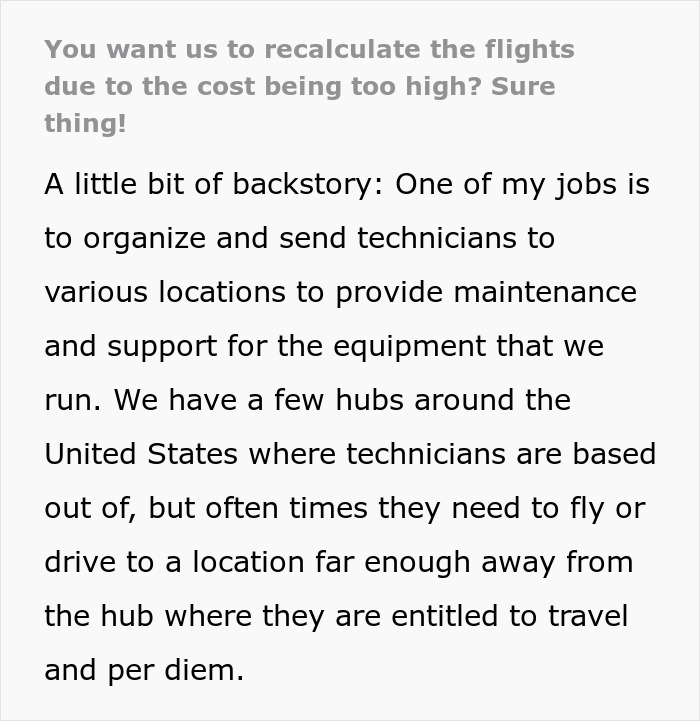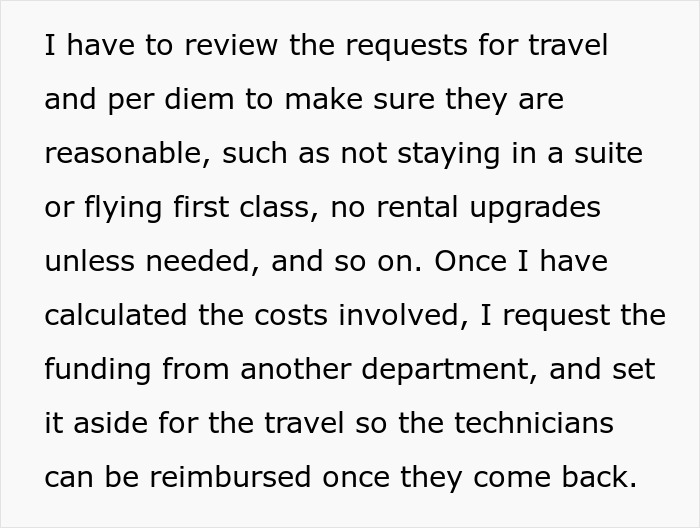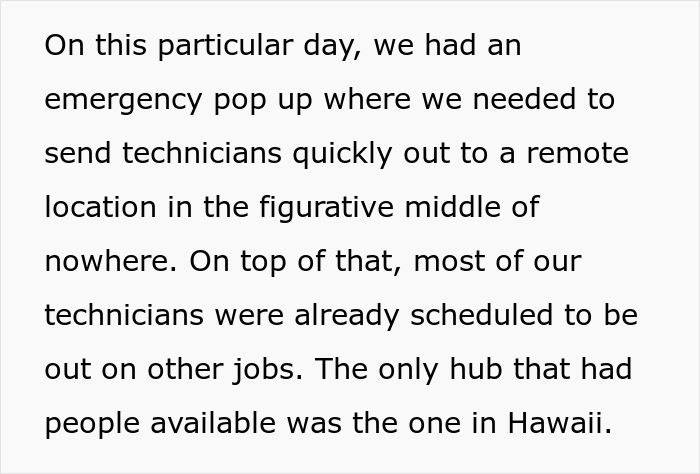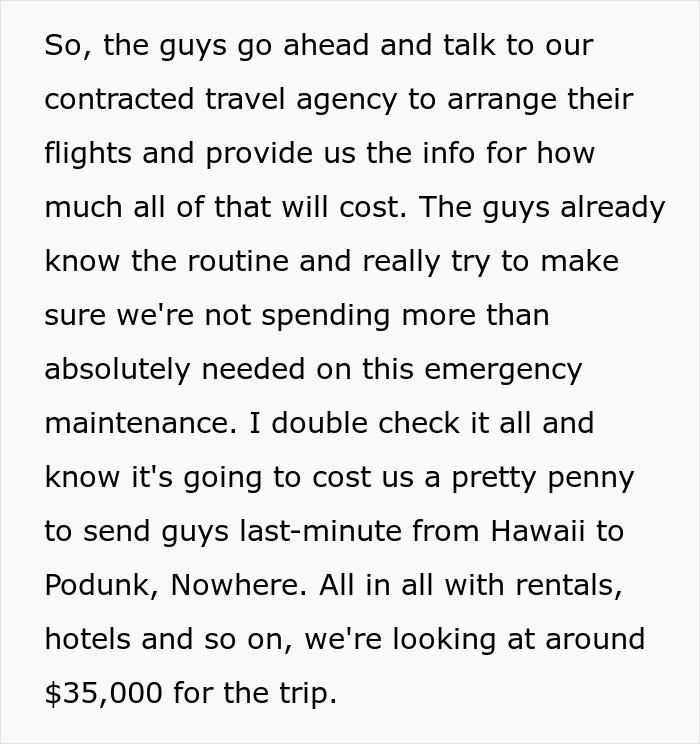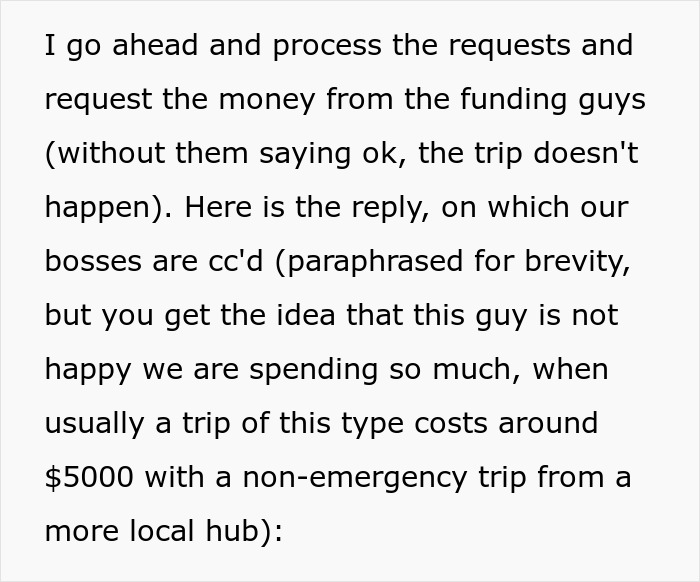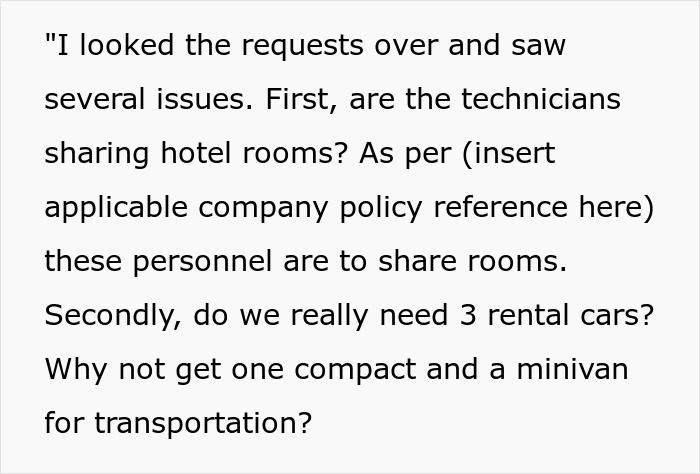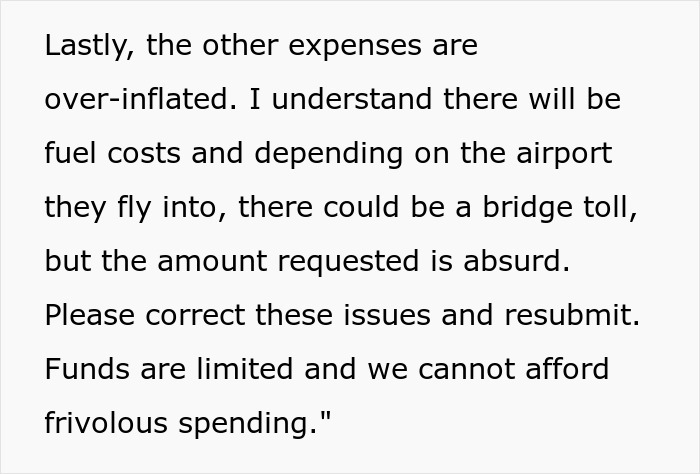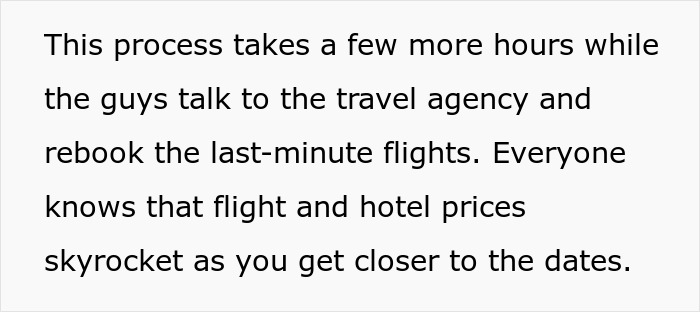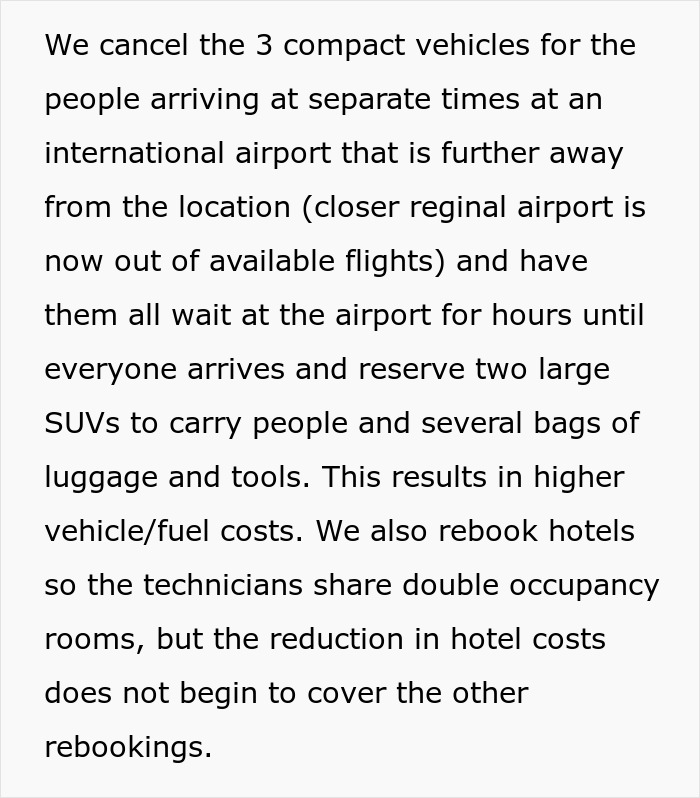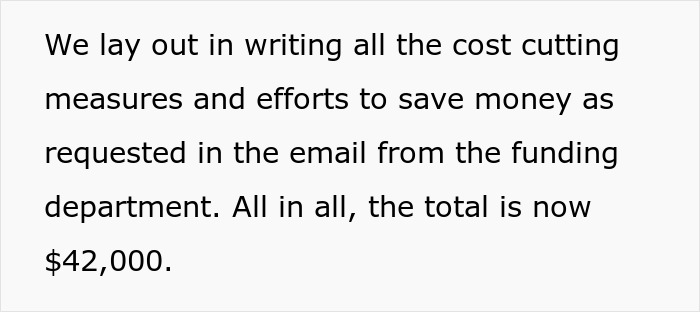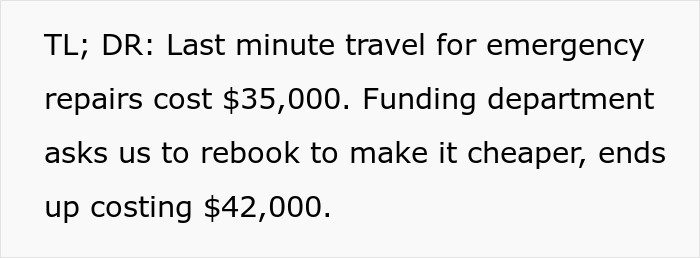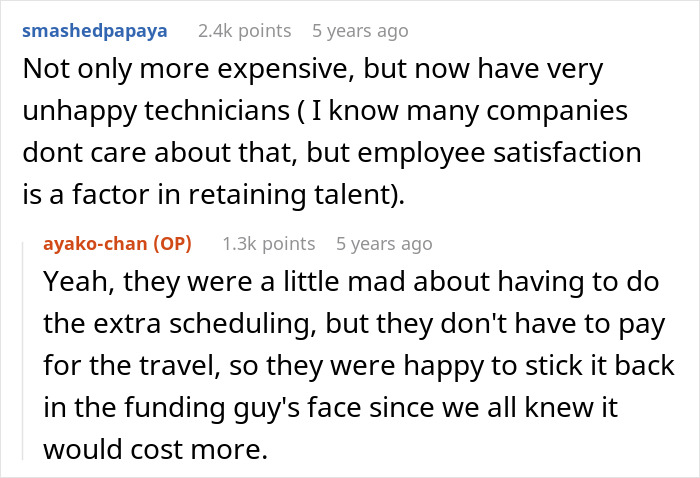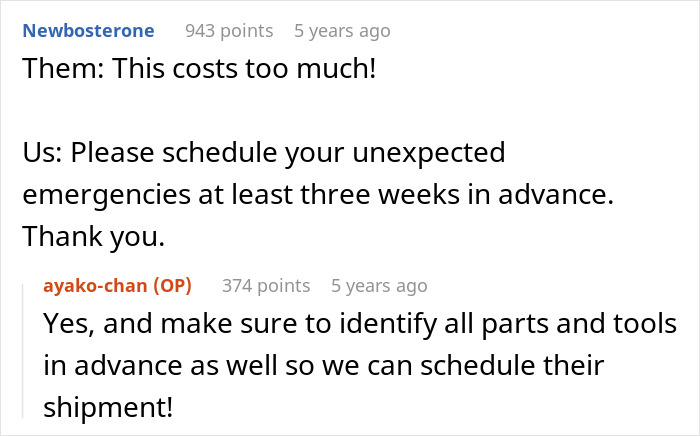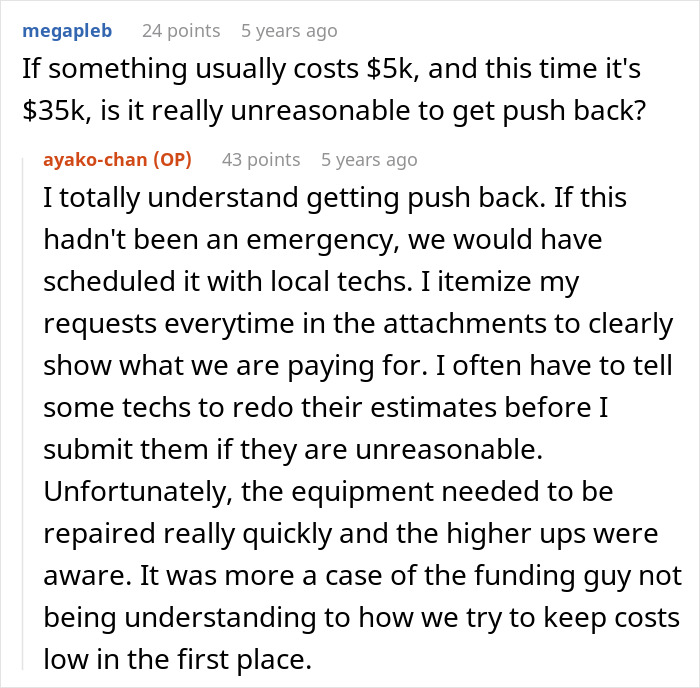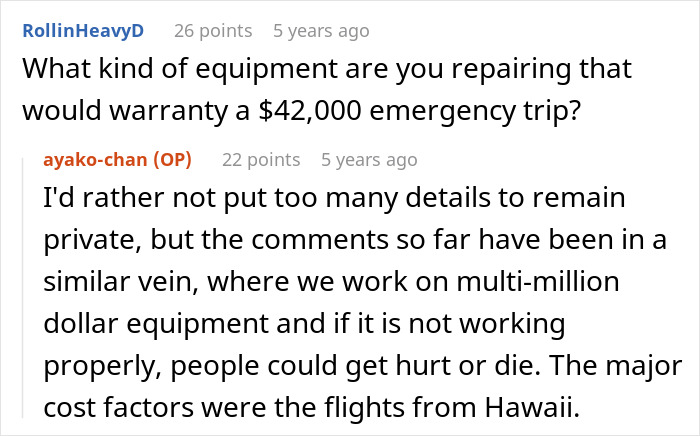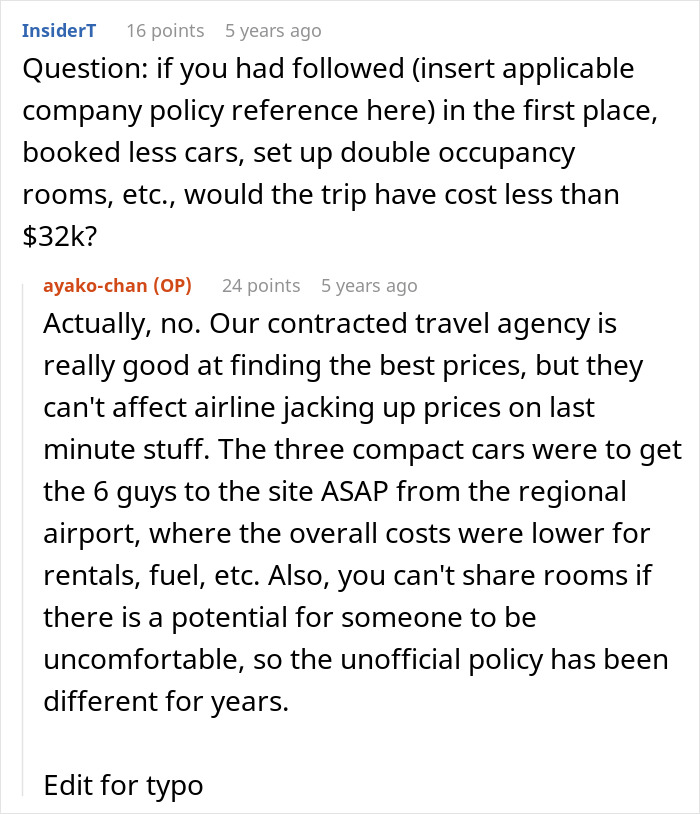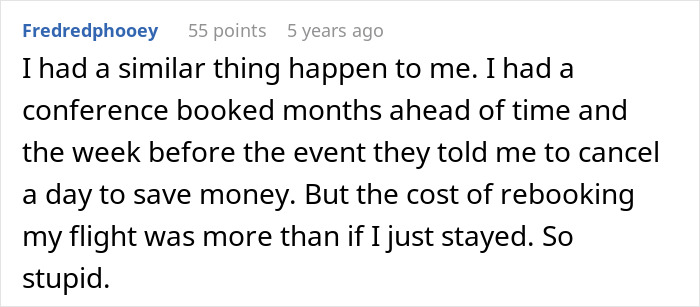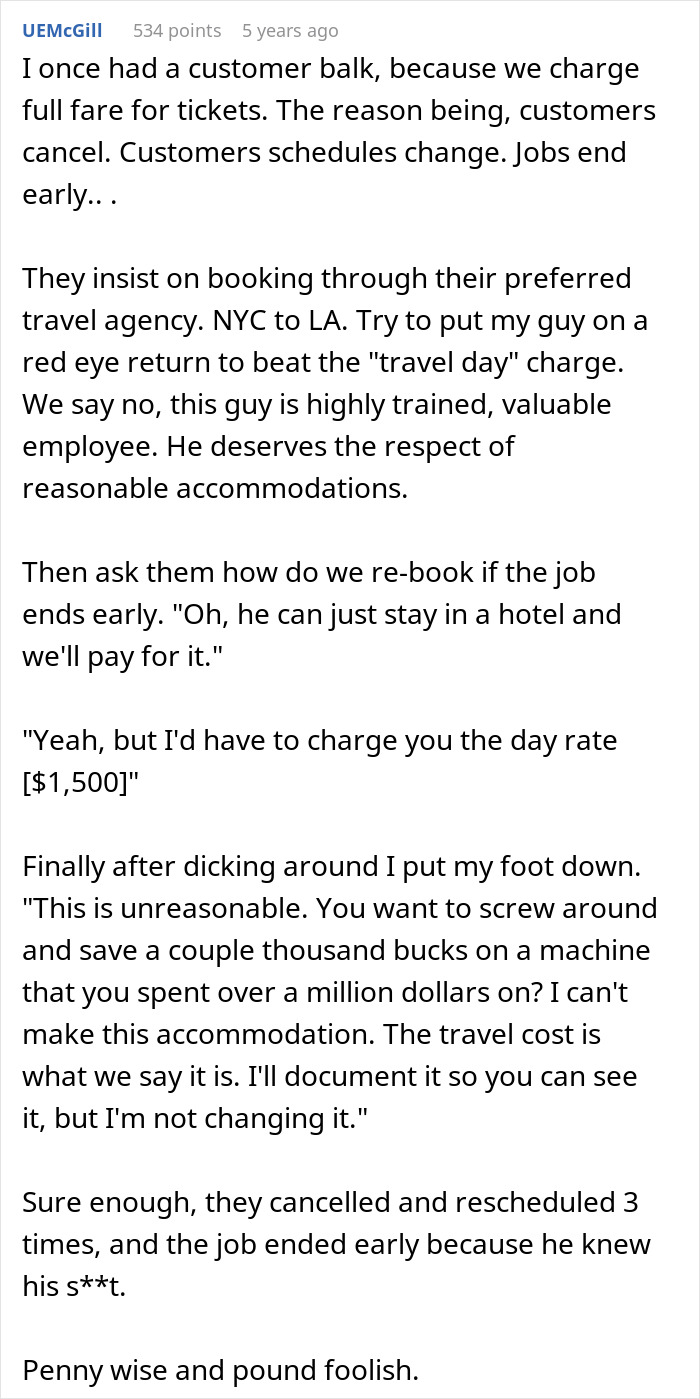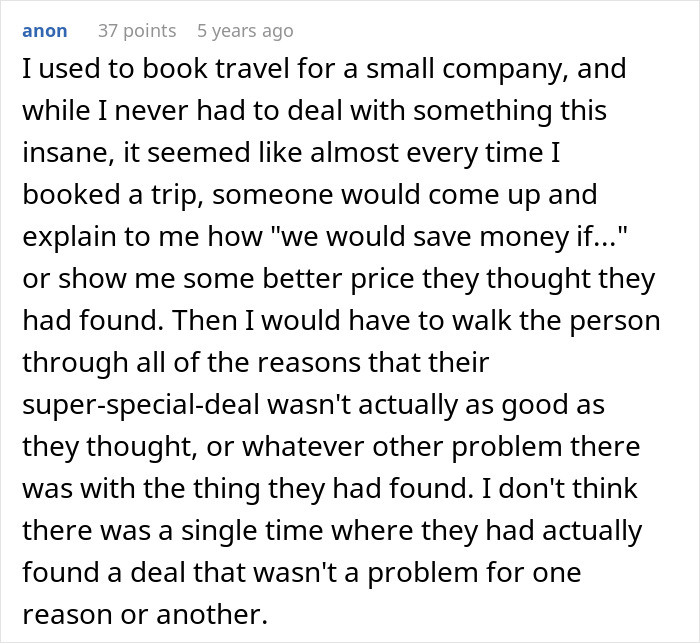A few years back, the Redditor u/ayako-chan shared her story of planning a work trip for her company’s technicians. As it was a last-minute trip, the initial costs were around $35,000. However, the financial department thought the sum was too high and demanded changes. Read on and see how much the author’s malicious compliance ended up costing the company.
Business trips can be costly for companies, so it’s no surprise some of them tend to skimp on the expenses
Share icon Image credits: JESHOOTS.COM (not the actual photo)
This company came to regret their decision to ask for reduced work trip costs
Share icon Image credits: Tima Miroshnichenko (not the actual photo)
Image source: ayako-chan
People who plan work trips have to take many things into consideration
Share icon Image credits: Gustavo Fring (not the actual photo) The final cost of the trip in this story is without a doubt quite large. Even $35,000 seems a lot, but as the OP clarified already in the comments, it was a last-minute trip, so there weren’t many options to choose from. What is the average sum for a business trip in the U.S.? According to Itilite, domestic trips can cost around $990, while international work trips might even end up costing somewhere around $2,525. The World Bank reports that the U.S. spent $322.42 billion on business travel expenses in 2021. The OP already mentioned the main expenses for the trip: accommodation, plane tickets, and ground transportation. However, there are several other things that trip planners have to take into consideration. There are meals, insurance, and incidental expenses. Some companies also take into account ‘bleisure.’ That’s a term that combines “business” and “leisure.” Sometimes, employees opt to extend their work trips to spend some time sightseeing, relaxing, or engaging in recreational activities. The company policy for this differs as well. Some companies cover expenses related only to business. The last category is miscellaneous expenses. Sounds quite vague, doesn’t it? Well, it’s things like baggage fees, charges for internet and communication, parking fees, laundry and dry cleaning, office supplies, and business-related printing and copying.
What companies shouldn’t do when trying to reduce business trip expenses
Share icon Image credits: AlphaTradeZone (not the actual photo) Brussels-based business travel expense solutions company MobileXpence lists the two things OP’s company did in this case as their don’ts. Avoiding last-minute bookings and forcing people to share a hotel room are a big no-no, according to them. While booking flights and accommodation last minute might’ve been inevitable in this case, booking hotel rooms that the employees will have to share is far from ideal. “After a long day of travel, everyone deserves some privacy and space to unwind. Plus, it’s important to prioritize your employees’ comfort and well-being over cost savings,” MobileXpence writes. These next don’ts were not mentioned by the OP, but experts advise business trip managers to be aware of them. One of them is relying solely on corporate deals. Sure, sometimes it’s really beneficial to have contracts with travel providers. But professionals say that cheaper options might come from other suppliers, especially for longer trips. Public or shared transportation (like the two cars instead of three in this story) is also an option. CMAC Group writes that the same goes for accommodation as well. Consider alternatives to traditional hotels, like Airbnb or serviced apartments.
Some netizens wanted to know more about the situation, and the OP was happy to answer questions
Commenters blamed the company and shared similar unpleasant experiences
Anyone can write on Bored Panda. Start writing! Follow Bored Panda on Google News! Follow us on Flipboard.com/@boredpanda!

